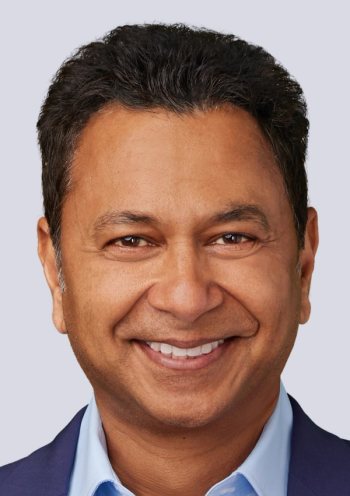
How Blockchain Can Transform Preventative Care
The technology can offer a secure, automated, and transparent system to streamline processes and promote activities that aid in preventative diagnostics.
The healthcare ecosystem is comprised of some of the most driven, dedicated, and intelligent individuals on the planet. In many ways, providers form a SWAT team of sorts, orchestrating information and input from across various doctors, diagnostic imaging, blood tests, and symptoms to determine a diagnosis and treatment plan for millions of people every day. Still, the strain of demand, and cost, compliance, and other issues continue to challenge the healthcare system.
In many cases, resources are focused on reacting to crisis rather than actions that prevent the crisis in the first place. Likewise, this dynamic has trickled down to
Focusing on prevention will not eliminate disease; however, it can definitively reduce illness and help to identify problems earlier, thus increasing survival rates and reducing medical and healthcare costs. This is why insurance companies are increasingly focused on preventative activities for their insured. But scaling these efforts, and incentivizing providers to support them in a consistent and meaningful way continues to be a challenge.
Countless technology startups and visionaries are beginning to introduce solutions to help reimagine the entire medical ecosystem. Blockchain is one innovation that offers significant potential to tackle the challenges in many areas, including preventative care. The technology can offer a secure, automated, and transparent system to streamline processes and promote activities that aid in preventative diagnostics.
Blockchain-based insurance
Traditionally, medical records are maintained in disparate systems that act as silos, making them difficult to track, and leaving patients with a lack control over their data and its confidentiality.
Further, the insurance process is fraught with red tape, causing extensive delays between when a claim is submitted, coverage is confirmed, and payment is made. But an immutable, secure blockchain solution, whereby the medical ecosystem has access to patient data, is able to transact with that data in a transparent way and uses smart contracts to realign incentives, can speed up process and reward patients and physicians for participation in preventative care activities.
Related:
In this model, patients are added to the system with a unique digital identifier, recorded, and secured on a distributed ledger. Once established in the system, all medical records, including birth records, previous tests, doctor visits, treatment plans, pharmacy, and prescription use, etc., are added to create an immutable chain of information that the entire ecosystem may access on a permissioned basis. This can stay with a person throughout their lifetime, providing access and control to records, even as their healthcare ecosystem changes over time.
When an insurance policy is assigned, policy data is added to the individual’s records in a secure block. Medical and insurance data can be added to the blockchain and updated in real time as new information is available from visits, tests and events. The individual selects and can update his/her ecosystem of healthcare providers and allow them access.
Using blockchain enabled smart contracts, online payments can be made for deductibles, co-payments and uninsured services. Insurance companies will release payments once the conditions of the contracts are met-removing all of the red tape, intermediaries, and bureaucracy plaguing today’s system.
A preventative-focused healthcare plan only works if the entire ecosystem is working together. This can be accomplished via incentives to drive appropriate behaviors. In this system, patients receive tokens for connecting their
A direct correlation between data availability and compliance is applied to the number of tokens awarded to the patient. The greater the participation, the greater the reward. Increasing the value of this data, AI will be applied to assist in the identification of problematic trends and their results.
Applying blockchain today
While a system like the one outlined above may be a longer-term endeavor, there are several blockchain based solutions that managed healthcare executives can examine now. One is establishing a blockchain-based database for
Blockchain-enabled smart contracts can be implemented to develop a system for the primary healthcare providers to transact and share data with other providers and information sources. When healthcare professionals have complete and secure access to tests, trends, and lifestyle information, they will be more successful with prevention. Smart contracts can streamline and automate this type of data sharing and access, and also enable payments and financial incentives for all parties participating in the preventative health ecosystem.
Healthcare executives can also leverage blockchain systems to manage their supply chain of devices, supplies and medications. When a digital identifier is assigned to a batch of supplies, it can be tracked across every step of the distribution process. The insights provided by that tracking can be leveraged to simplify record keeping, inform business decisions, ensure product authenticity, and manage recalls.
Changing the way we solve healthcare challenges is not only critically important to the well-being of patients, but also to the financial sustainability of our healthcare system. Blockchain enables one way to achieve this, while simultaneously offering complete transparency and strong data security. It can give patients more control over their experience and personal medical information, while empowering prevention, and reducing the overwhelming costs of today’s healthcare economy.
Steve McNew is a senior managing director within the Technology practice of FTI Consulting and is based in Houston. He helps clients evaluate and implement blockchain solutions and builds cost-effective and defensible strategies to manage data for complex legal and regulatory matters. Steve is an expert in blockchain, Bitcoin, and information and data security. He completed studies in blockchain and cryptocurrency at MIT and is a member of The Wall Street Blockchain Alliance. He has led engagements involving blockchain assessments, pilot projects, and software selection and implementation and is frequently engaged as a cryptocurrency expert in disputes, investigations, and litigation.
Newsletter
Get the latest industry news, event updates, and more from Managed healthcare Executive.























